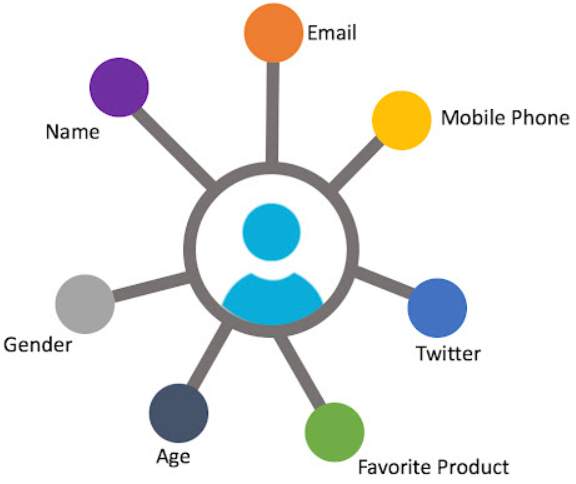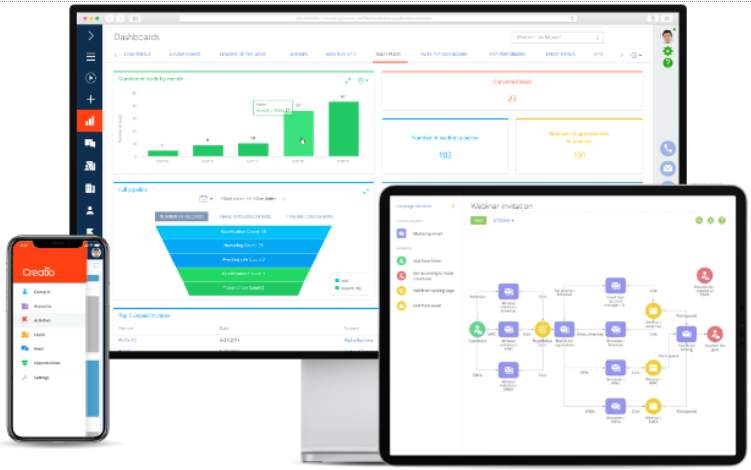Table of Content
In today’s analytics-driven technological landscape, more companies are learning to exploit data to determine the sizes of potential markets, identities of potential and actual customers, and their precise requirements.
One of the tools at their disposal is database marketing as it can help organisations to structure sales tasks and services according to customers’ preferences and their variability, all while making the customer a central point of focus.
So, What Is Database Marketing?
Generally speaking, database marketing is essentially a marketing technique that involves accumulating, collating, processing and analysing information on consumers, competition and operational areas. Database marketing activities are mainly aimed at optimisation of customer-oriented experiences, recognition of the customers’ needs and the adjustment of promotions and offers to their requirements and expectations.
Overall, it entails the identification of opportunities and threats related to an enterprise’s operations, in order to achieve more efficient management of costs as well as regular monitoring of market trends by exploiting customer databases to improve marketing productivity.
 Constituents of database marketing. Image Credit: datafloq.com
Constituents of database marketing. Image Credit: datafloq.com
This means that it revolves around more effective acquisition, retention, and development of customers using advanced data analytics that focuses on past, current and potential customers’ demographic profiles, likes and dislikes, tastes, purchase behaviour and lifestyle.
An Example of Database Marketing
One of the major players in the database marketing game has been Netflix. The streaming giant has basically mastered the art of business-to-consumer (B2C) data management with its recommendation-based algorithm that basically suggests programming based on customers’ viewing patterns.
This is an excellent example of effective database marketing. In practice, once Netflix’s proprietary algorithm suggests a show to a viewer, it then cross-references that with other viewers with similar tastes and preferences.
 Netflix’s mobile app heavily relies on database marketing. Image Credit: endgadget.com
Netflix’s mobile app heavily relies on database marketing. Image Credit: endgadget.com
Fundamentally, Netflix’s exploitation of data continues in this cycle, serving its diverse global community of subscribers with personalised suggestions to simplify the user experience.
What Is the Purpose of Database Marketing?
For the most part, database marketing is basically an interactive approach to marketing that uses addressable communications media (like mail, telephone, and the sales force) to target its audience, in order to stimulate their demand, and maintain connectivity by recording and keeping their electronic data to better serve them.
As such, the main purpose of database marketing is to enhance customer value in today’s competitive, information-intensive, and ROI-oriented business environment.
Overall, the key thing to understand about database marketing is that it’s a strategy, not a tactic. It is essentially a commitment to capturing new customers and staying in an ‘interactive relationship’ with them to ensure future referrals. This means that it’s a large-scale, long-time planning and tactical strategy with specific technology-driven activities that support the strategy.
Why Engage in Database Marketing?
There are three main reasons to engage in database marketing:
- To enhance marketing productivity and prioritise and target customers with appropriate products, services, and prices.
- To enable the development of profitable customer relationships.
- To create sustainable tactical competitive advantages since customer data is a company resource that’s almost impossible for other companies to duplicate.
Benefits of Database Marketing
The main benefit of a database is that it offers a uniform way of presenting the relationships with individual customers or segments. This consequently gives a business a better way of understanding consumers’ behaviour and mechanisms of the market functioning, and then use this knowledge for mobile marketing purposes.
As a result, database marketing can enable the correct identification of customers to whom a promotional message, a loyalty program or offers can be addressed. Not to mention, it can allow the development of custom-made messages or specific offers for specific customers.
The summarised benefits are:
- The ability to collect up-to-date information on customers to understand their needs and requirements, allowing for quick response to evolving market situations.
- Improved customer service.
- The ability to follow market trends and accordingly respond to them with relevant actions. For example, by crafting a new product line, modification of already existing products, or even relaunching a product with refreshed packaging).
- Customer segmentation and identifying the most valuable customers to target them for specialised marketing and promotional actions.
- Lower costs of promotional campaigns by accurate identification of target groups.
- Increased customer loyalty due to relevant actions targeted to prospective groups with the right timing.
How Database Marketing Benefits for Mobile Marketers
- It helps them to segment customers and create different customer groups, for example, high-value customers, one-time buyers, first-time buyers, and loyal customers
- Provides a comprehensive view of customer interactions and engagement to increase the quality of customer service
- Helps them to create more effective incentives or loyalty programs for customers
- Helps them to easily identify and target prospects who are likely to do business with the company.
- Helps in the identification of the most effective timing and channels to engage prospects and customers.
- Helps in the tailoring of messages to the needs and interests of target audiences.
How Does Database Marketing Work?
There are two main types of database marketing:
- Consumer database: This database marketing type is geared toward companies that sell directly to their consumers, often called direct-to-consumer, D2C, DTC, or B2C.
- Business database: This database marketing type focuses on businesses that sell to other businesses(B2B).
Overall, today’s database marketing landscape involves the use of many statistical models in order to detect potential customers. However, this starts with the customer’s personal data pertaining to single transactions (purchase history), and customer communications (received mail, motivation stimuli, marketing actions and market responses) as the minimum requirements.
 The main data points collected in database marketing. Image Credit: moosedirectmarketing.com
The main data points collected in database marketing. Image Credit: moosedirectmarketing.com
Overall, the types of data employed in database marketing are:
- Market information
- Relationship data relating to a company’s actions and market
- Data on the company.
Furthermore, the exact techniques utilised in database marketing include;
- Database manipulation methods
- Statistical methods for predicting customer’s likelihood of future purchases of particular items based on their history of past purchases.
- Mechanisms for computing the lifetime value of a customer on an ongoing basis
 The database marketing process. Image Credit: db-marketing.com
The database marketing process. Image Credit: db-marketing.com
All these techniques and mechanisms are typically performed in a customer relationship management (CRM) system, which is the heart of database marketing. In essence, to transform the existing clients into a loyal ones as well as attracting new ones, one must choose an intuitive CRM software to:
- Automate and monitor the entire customer lifecycle, end-to-end.
- Keep track of the leads and prospects coming into the sales pipeline to maximise outreach efforts.
- Continuously monitor campaigns like PPC (pay-per-click) campaigns to segment customers based on visits to one’s website.
- Foster loyalty by helping curate special offers and discounts to ensure customers are satisfied.
- Easily maintain data and different data points while also enabling one to purge their database of old or outdated information that can be onerous and costly.
 An example of a CRM Software. Image Credit: cloudstorysolution.com
An example of a CRM Software. Image Credit: cloudstorysolution.com
Stages of Database Marketing
Fundamentally, there are five levels that are involved in database marketing:
- Level 1 – This involves basic direct Marketing and is characterised by the lack of: a marketing database, customer-level data, customer direct communication, and program evaluation.
- Level 2 – This level involves customer Stratification, and starts with curating a marketing database, customer loyalty program, customer differentiation and ROI measurements.
- Level 3 – This stage entails customer segmentation activities such as data mining, customer level testing and pre and post-financial analysis.
- Level 4 – Operationalising by leveraging data infrastructures, customer knowledge, proven mechanisms to achieve profitability.
- Level 5 – In this stage, the database marketing exercise delivers data enhancements, customer satisfaction, enhanced customer delivery and customer value enhancement. So, basically, at this level, businesses utilise their database marketing systems to attain a leading position in the marketplace.
Overall, database marketing is a strategic necessity as it helps to:
- minimise communication errors and breakdowns with customer
- Predict customer response and project lifetime value of individual customers
- track customer purchasing patterns and understand their motives.
- target marketing efforts
- vary customer messages to different customer groups
- customise promotions, prices and services to individual consumers
- to reduce marketing costs and increase profits and improve customer retention through loyalty programs
- coordinate the delivery of multiple services to the same customer
- augment core offerings with valued incentives
- personalise dialogue
- conduct market research and testing
- track and measure the outcome of different marketing programs
 Database marketing is one of the disciplinary arms of relationship marketing. image Credit: researchgate.com
Database marketing is one of the disciplinary arms of relationship marketing. image Credit: researchgate.com
Future Trends in Database Marketing
- Point-of-purchase data collection and capture will significantly increase, particularly at retailer locations.
- More mobile marketers will contribute customer data to compiled databases, which will become an increasingly valuable source of pre-qualified prospects. However, consumer privacy concerns will grow as more data is captured and shared.
- Technology will evolve to give additional channels for marketing and communicating with customers as technological advances will continue to drive the cost of computing down and the processing efficiency up.
- Database marketing will proceed to expand into new industries and companies.
- Data will become more accurate and less expensive.
- Analytical models will become more sophisticated and simpler to use.
Final Thoughts
In summary, customer data management has become not only a strategic option but almost a strategic necessity. Database marketing will continue to play a vital role in the precision of defining marketing actions and their addressing to the relevant recipient. However, such transactions require sustaining customer relationships and applying efficient communication.
Overall, the strategic employment of customer databases and precise segmentation based on identified and registered consumer profiles is a critically decisive factor for achieving defined customer targets and marketing efficiency.
In conclusion, today’s database marketing largely overlaps with CRM analytics, employing analytical tools like R, Python, and Alteryx. Furthermore, current database marketing techniques have evolved to involve the extensive application of regression and machine learning algorithms like K-means, hierarchical clustering, two-step clustering etc.
Related Sources to Read:
–When to Consider Mobile App Development for Your Business
–Why Mobile Apps Are Important for Your Business
–Factors to Consider When Hiring a Mobile App Development Company
–Mobile App Development Cost Estimate in Malaysia
Looking for a top-notch Mobile App Developer Malaysia? Your search ends here! Contact us now to bring your app idea to life with expert developers.

